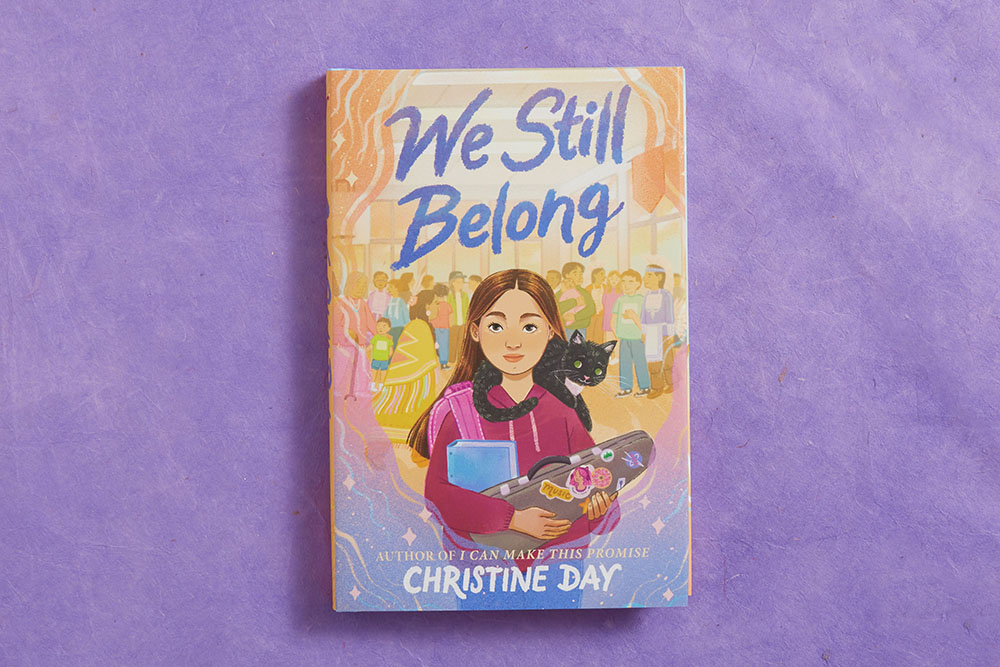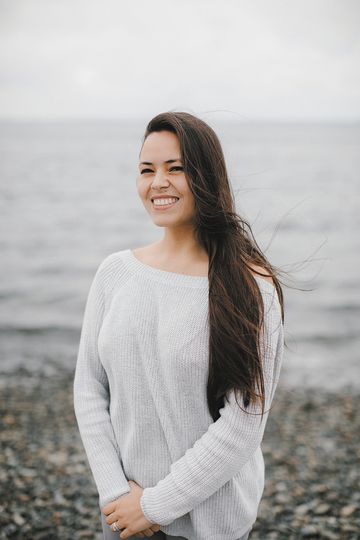
- Details
- By HarperCollins
“What advice do you have for reconnecting Natives?”
This question came to me from a high school student in Tacoma, Washington. A Pueblo girl in Coast Salish territory. I was the guest speaker at her school that day, and she was one of many students—in a crowd of Native and non-Native teens—who had read my debut novel, I Can Make This Promise.
I don’t remember my exact response. I might have said that reconnecting is a lifelong, multifaceted journey for most folks. I might have suggested joining school clubs as a great place to start. I might have encouraged her to read as many Native-authored books as she can, to speak with family members if she is able to, or to attend local powwows and community gatherings.
 Christine Day. Photo by Jessica WoodI’m not sure, though. My memory of my response is hazy, even though I can picture her hopeful face clearly in my mind.
Christine Day. Photo by Jessica WoodI’m not sure, though. My memory of my response is hazy, even though I can picture her hopeful face clearly in my mind.
I’ve had countless interactions like these. Readers of all ages come to me with questions and comments related to who they are, where they’re from, or where they want to be. Once, in an elementary school gymnasium in Maple Falls, Washington, a girl who’d read The Sea in Winter approached me after my presentation. She said she related to the main character, Maisie, because she too loves to dance, and also because she doesn’t know her biological father.
“I haven’t seen my dad in ten years,” she told me. “And I am ten.”
Then she burst into tears, and I remember exactly how I responded this time: I opened my arms to her, and we hugged tightly, fiercely.
With the stories I’ve written, young people feel they can trust me with their vulnerability, as well as their big questions. This trust is—by far—the greatest reward of my writing career.
“Have you ever felt nervous about sharing your writing with people?”
“Have you ever lost a friend?”
“Have you ever considered giving up on a story?”
Yes and yes and yes.
Often, I get to indulge in their silliness, too. During my school presentations, the Q&A sessions have been known to span a wide array of topics:
“Luke Skywalker or Anakin Skywalker?”
Fun fact: I once wrote an essay in college that compared Anakin Skywalker to Heathcliff from Wuthering Heights. My professor gave me an A. So I’ll go with Anakin, even though he’s an antihero.
“Have you ever played Minecraft?”
No, I don’t play Minecraft, but I enjoy other video games.
“Do you have any pets?”
Yes, I have a Chihuahua named Kia. I used to have a cat named Caesar, but he passed away in March 2021. My next book, We Still Belong, is partially dedicated to him, though.
We Still Belong is also dedicated to “the kids who yearn to belong,” which qualifies most of the young readers I’ve met so far. I dedicated this book to them, because they inspire me with their curiosity and compassion. I dedicated it to them, because I believe young people deserve to feel a sense of belonging, no matter who they are, or where they’re from, or what they’re going through in life.
We are all related. We are all connected. And we all belong. More than anything, I hope this is the message kids will take away from my next book.
And I can’t wait to talk with them about it.
Help us defend tribal sovereignty.
At Native News Online, our mission is rooted in telling the stories that strengthen sovereignty and uplift Indigenous voices — not just at year’s end, but every single day.
Because of your generosity last year, we were able to keep our reporters on the ground in tribal communities, at national gatherings and in the halls of Congress — covering the issues that matter most to Indian Country: sovereignty, culture, education, health and economic opportunity.
That support sustained us through a tough year in 2025. Now, as we look to the year ahead, we need your help right now to ensure warrior journalism remains strong — reporting that defends tribal sovereignty, amplifies Native truth, and holds power accountable.
 The stakes couldn't be higher. Your support keeps Native voices heard, Native stories told and Native sovereignty defended.
The stakes couldn't be higher. Your support keeps Native voices heard, Native stories told and Native sovereignty defended.
Stand with Warrior Journalism today.
Levi Rickert (Potawatomi), Editor & Publisher
